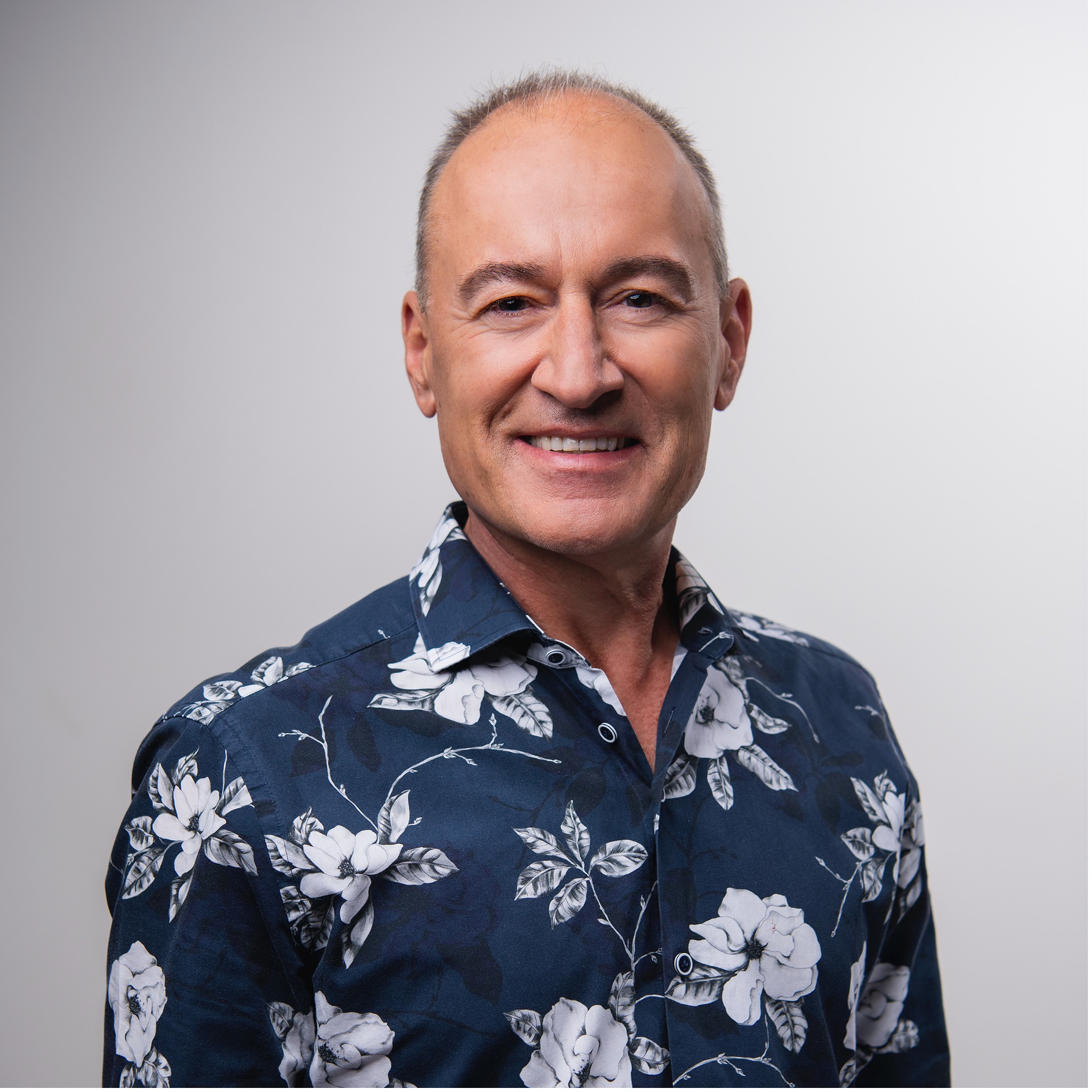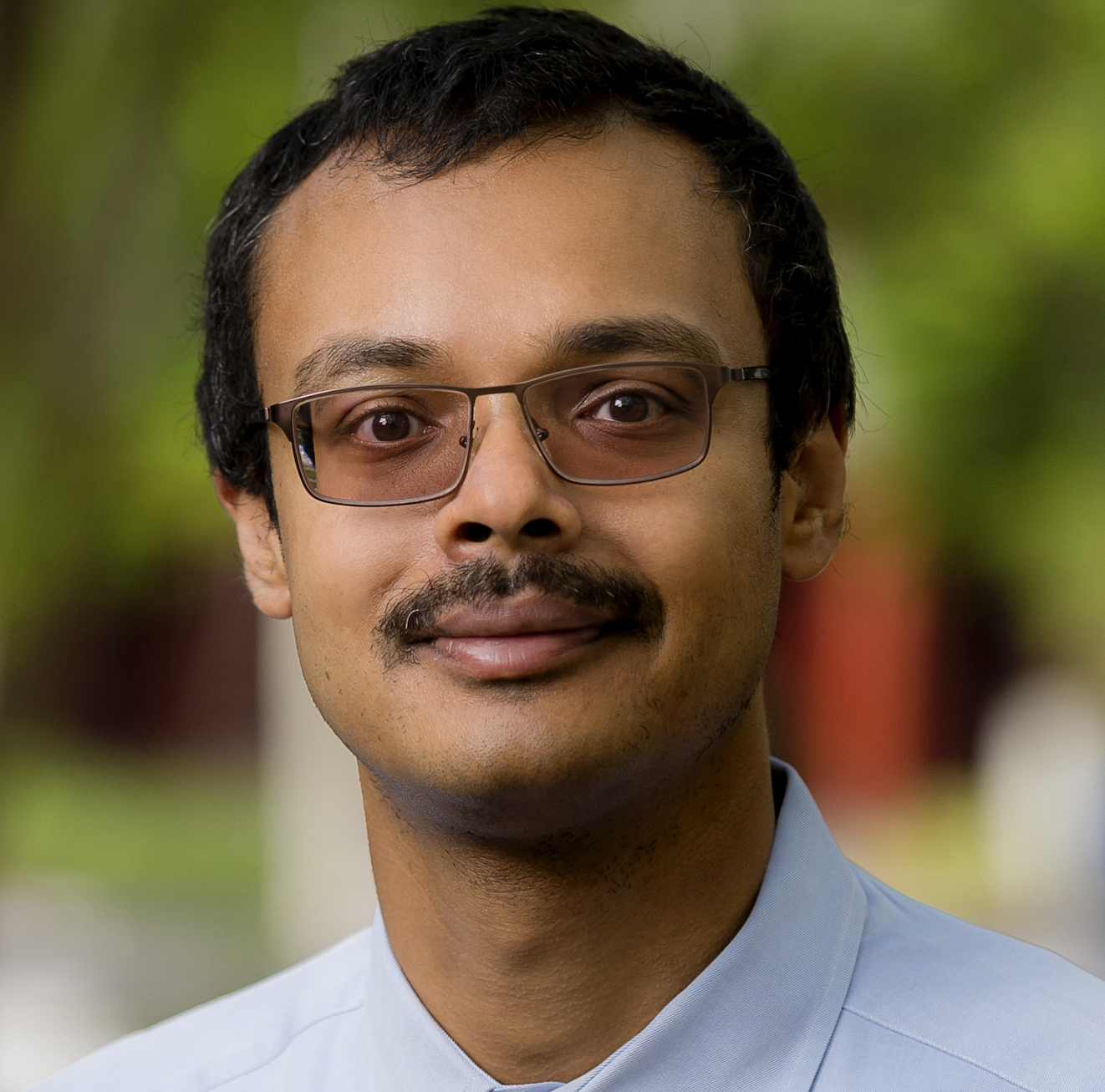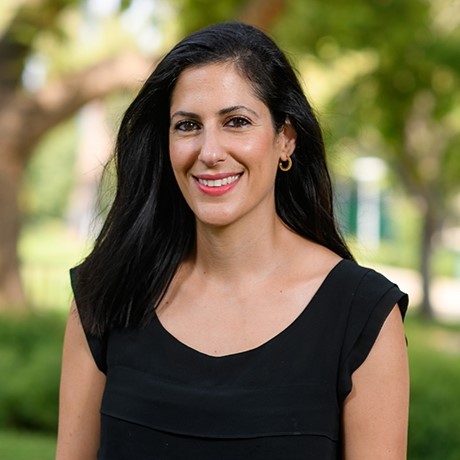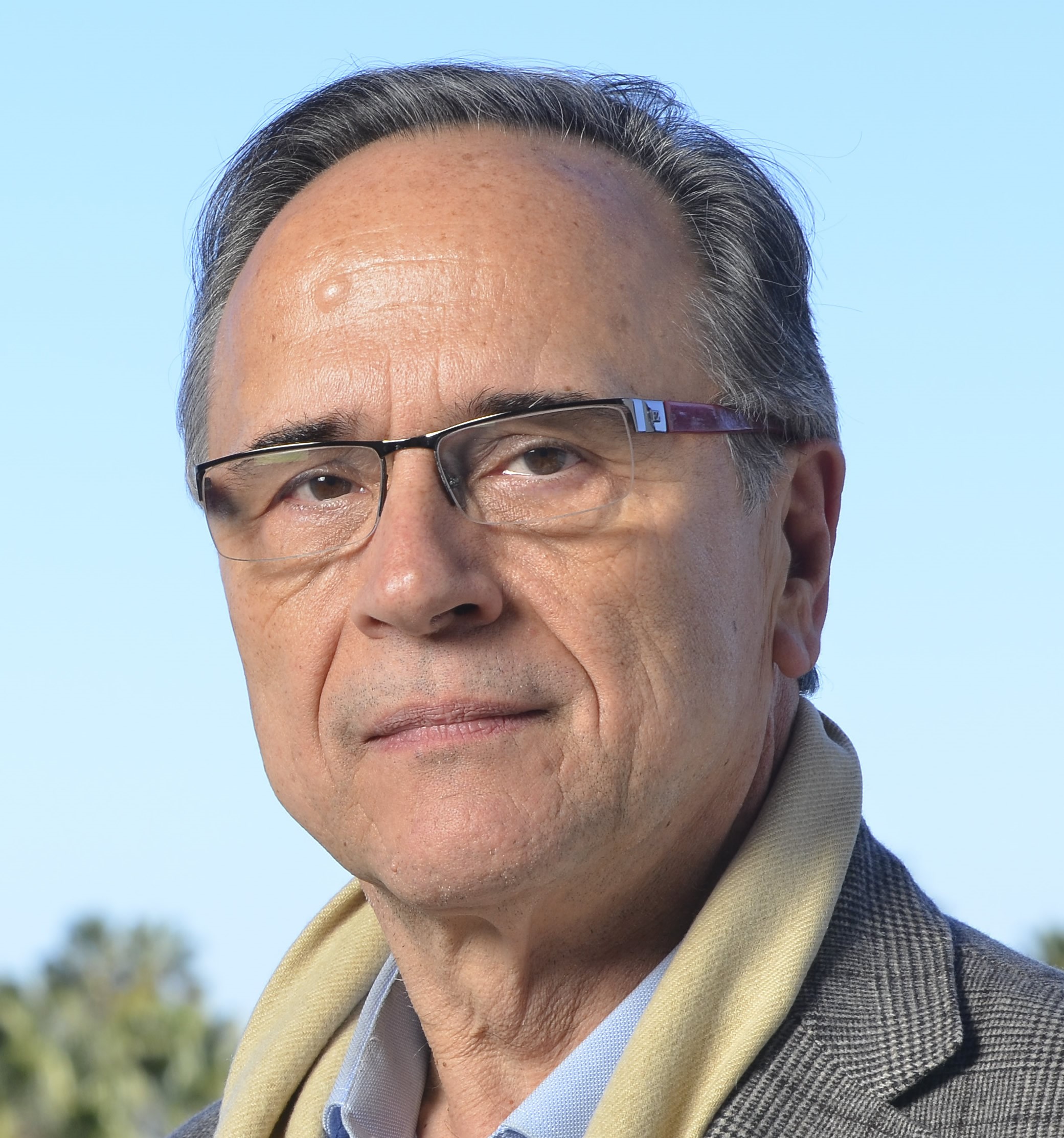Keynote Speakers

Markus Gross
Markus Gross is the Chief Scientist of the Walt Disney Studios and a professor of Computer Science at ETH Zürich. He is one of the leading authorities in visual computing, computer animation, digital humans, virtual reality, and machine learning. In his role at Disney he leads the Studio segment’s research and innovation unit, where he and his team are pushing the forefront of technology innovation in service of the filmmaking process. Gross has published over 500 scientific papers and holds over 100 patents. His work and achievements have been recognized widely, including two Academy Awards and the ACM SIGGRAPH Steven Anson Coons Award. Gross is member of multiple academies of science and of the Academy of Motion Picture Arts and Sciences.

Ravi Ramamoorthi
Ravi Ramamoorthi is the Ronald L. Graham Professor of Computer Science at UCSD and founding director of the UC San Diego Center for Visual Computing. He earlier held tenured faculty positions at UC Berkeley and Columbia University, in all of which he played a key leadership role in building multi-faculty research groups recognized as leaders in computer vision and graphics. He has authored more than 200 refereed publications in computer graphics and vision, including 90+ ACM SIGGRAPH/TOG papers. Prof. Ramamoorthi has introduced widely used theoretical representations and computational models for problems in vision and graphics, such as spherical harmonic lighting and neural radiance fields, and widely adopted methods in industry such as Monte Carlo denoising. He has consulted with Pixar and startups in computational imaging, and currently holds a part-time appointment as a Distinguished Research Scientist at NVIDIA. Prof. Ramamoorthi has received about twenty major honors for his research including the ACM SIGGRAPH Significant New Researcher Award for his work in computer graphics, and the Presidential Early Career Award for Scientists and Engineers for his work on physics-based computer vision. He is a fellow of IEEE, ACM and the SIGGRAPH Academy, recently received an inaugural Frontiers of Science Award, and has twice been honored with the edX Prize certificate for exceptional contributions in online teaching and learning. He has graduated more than 30 postdoctoral and Ph.D. students, whose theses have been recognized by the ACM Dissertation Award honorable mention, the ACM SIGGRAPH outstanding dissertation award and the UCSD Chancellor’s Dissertation Medal.

Tali Dekel
Tali Dekel is an Assistant Professor at the Mathematics and Computer Science Department at the Weizmann Institute, Israel. She is also a Staff Research Scientist at Google, developing algorithms at the intersection of computer vision, computer graphics, and machine learning. Before Google, she was a Postdoctoral Associate at the Computer Science and Artificial Intelligence Lab (CSAIL) at MIT. Tali completed her Ph.D. studies at the school of electrical engineering, Tel-Aviv University, Israel. Her research interests include computational photography, image/video synthesis, geometry, and 3D reconstruction. Her awards and honors include the National Postdoctoral Award for Advancing Women in Science (2014), the Rothschild Postdoctoral Fellowship (2015), the SAMSON – Prime Minister’s Researcher Recruitment Prize (2019), Best Paper Honorable Mention in CVPR 2019, and Best Paper Award (Marr Prize) in ICCV 2019. She often serves as program committee member and area chair of major vision and graphics conferences More information in: https://www.weizmann.ac.il/math/dekel/home

Leonidas Guibas
Leonidas Guibas is the Paul Pigott Professor of Computer Science (and by courtesy), Electrical Engineering at Stanford University, where he heads the Geometric Computation group, and also a Principal Scientist at Google. Prof. Guibas obtained his Ph.D. from Stanford University under the supervision of Donald Knuth. His main subsequent employers were Xerox PARC, DEC/SRC, MIT, and Stanford, including stays at Meta, Google, and Autodesk. He has worked in numerous areas of computer science, such as geometric algorithms, computer vision, computer graphics, robotics, machine learning, discrete mathematics, and biocomputation. At Stanford he is a member and past acting director of the Artificial Intelligence Laboratory and a member of the Computer Graphics Laboratory, the Institute for Computational and Mathematical Engineering (iCME), and the Bio-X program. Dr. Guibas has been elected to the US National Academy of Engineering, the US National Academy of Sciences, and the American Academy of Arts and Sciences and is an ACM Fellow, an IEEE Fellow, and winner of the ACM Allen Newell Award, the ICCV Helmholtz prize, and Siggraph’s Test-of-Time paper award.
Prof. Markus Gross
Date: Wednesday, 24 April 2024
Title: Bringing Digital Characters and Avatars to Life
The creation of lifelike digital human faces has been pivotal in a range of applications, spanning from healthcare and telepresence to virtual assistants and cinematic visual effects. For decades, the ultimate objective has been to create digital representations so authentic that they are virtually indistinguishable from real faces, while also conveying genuine emotional depth. Overcoming the challenge of the “uncanny valley” has been crucial to this pursuit. In this talk, I will give a 30-year retrospective of pioneering research in digital humans. We will explore the evolution of various elements —including facial capture techniques, geometry, appearance modeling, soft tissue modeling as well as eyes, teeth, and hair.
The talk will also highlight the transformative impact of contemporary machine learning on facial visual effects. As we look toward the future, the focus will shift to real-time facial animation and the symbiotic relationship between digital characters and machine learning algorithms to bring AI avatars to life.
Prof. Ravi Ramamoorthi
Date: Tuesday, 23 April 2024
Title: Image-Based Rendering: From View Synthesis to Neural Radiance Fields and Beyond
Applications in augmented reality, 3D photography, immersive experiences and appearance acquisition require solving the view synthesis problem – given a few images of an object or scene of interest, how can we synthesize images from new viewpoints. This is a fundamental problem in computer vision and graphics, often referred to as image-based rendering, and can be encapsulated as reconstructing the light field of all light passing through a scene from a set of observations. In this talk, I will first briefly describe the 30-year history of the problem and seminal papers, then discuss a series of efforts my group has made in light field synthesis from sparse images, ultimately leading to the now widely used neural radiance field representation. I discuss the impact of this work and follow-ups, leading to newer work from my group on personalized avatars, enabling real-time radiance fields or live 3D portraits from a single image.
Prof. Leonidas Guibas
Date: Thursday, 25 April 2024
Title: Compositional Modeling of 3D Objects and Scenes
The compositional structure of objects (into parts) and of scenes (into objects) is central to many tasks in 3D scene understanding or 3D content creation. The identification and organization of structural components and their metric and relational attributes informs the modeling of component geometry, arrangements, affordances, and functionality – while also providing tools for semantics-aware content selection and manipulation. This talk will highlight some of the history and progress on neural approaches enabling representations for 3D objects and scenes that are, or can be made to be, structure aware – along with the challenges associated with obtaining data sets, data annotations, etc. It will also demonstrate how, in turn, such structural information allows improved or more efficient 3D reconstruction or generation, as well as the controllable creation of variations, both discrete and continuous. Finally, the talk examines how 3D compositional structure can emerge from data without little or no human supervision, how it is reflected in natural language, and how we can increase 3D structure awareness and spatial reasoning abilities in current large-scale LLMs and VLMs.
Dr. Tali Dekel
Date: Friday, 26 April 2024
Title: The Future of Video Generation: Beyond Data and Scale
The field of computer vision is in the midst of a generative revolution, demonstrating groundbreaking image synthesis results, portraying highly complex visual concepts such as objects’ interaction, lighting, 3D shape, and pose. Expanding this progress to videos introduces two key challenges: (i) the distribution of natural videos is vast and complex, requiring orders of magnitude more training data than images, and (ii) raw video data is extremely high dimensional, requiring extensive computation and memory. In this talk, I’ll present different methodologies aimed at overcoming these challenges and advancing our capabilities to synthesize and edit visual content across both space and time. These methods range from layered video representations tailored to a specific video, to leveraging generative image priors for video synthesis tasks, and finally, designing and harnessing large-scale text-to-video models, which provides us with powerful motion priors. I’ll demonstrate how these methods unlock a variety of novel content creation applications, such as transferring motion across distinct object categories, image-to-video synthesis, video inpainting, and stylized video generation.